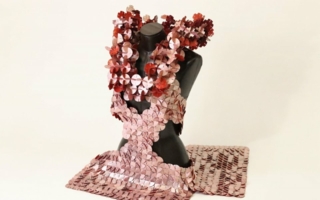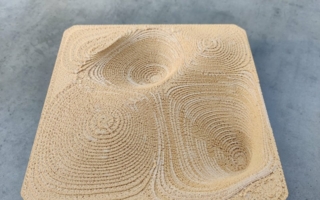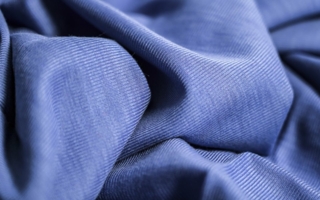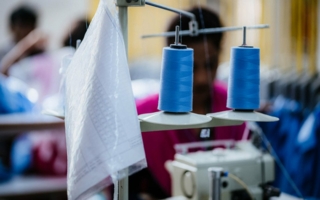
TômTex is collaborating with nature to create a new class of materials for the apparel, automotive, and consumer goods industries. © TômTex

TômTex is collaborating with nature to create a new class of materials for the apparel, automotive, and consumer goods industries. © TômTex

In the project 3DNaturDruck, construction elements will be manufactured additively from natural fibers, such as here a free-form tile made of wood short fiber filament. © LZH

Gretes is a boutique-style international brand. It focuses on creating handmade, fashionable, and high-quality sleepwear and loungewear. © Gretes

The extremely hard-wearing and at the same time very fine and light high-end Merino Jersey made in Germany, Upper Franconia, is a completely new product on the market. The yard ware can be further processed in many different ways. © Thümling Textilmaschinen

GOTS is the stringent voluntary global standard for the entire post-harvest processing (including spinning, knitting, weaving, dyeing and manufacturing) of apparel and home textiles made with certified organic fibre (such as organic cotton and organic wool), and includes both environmental and social criteria. © GOTS